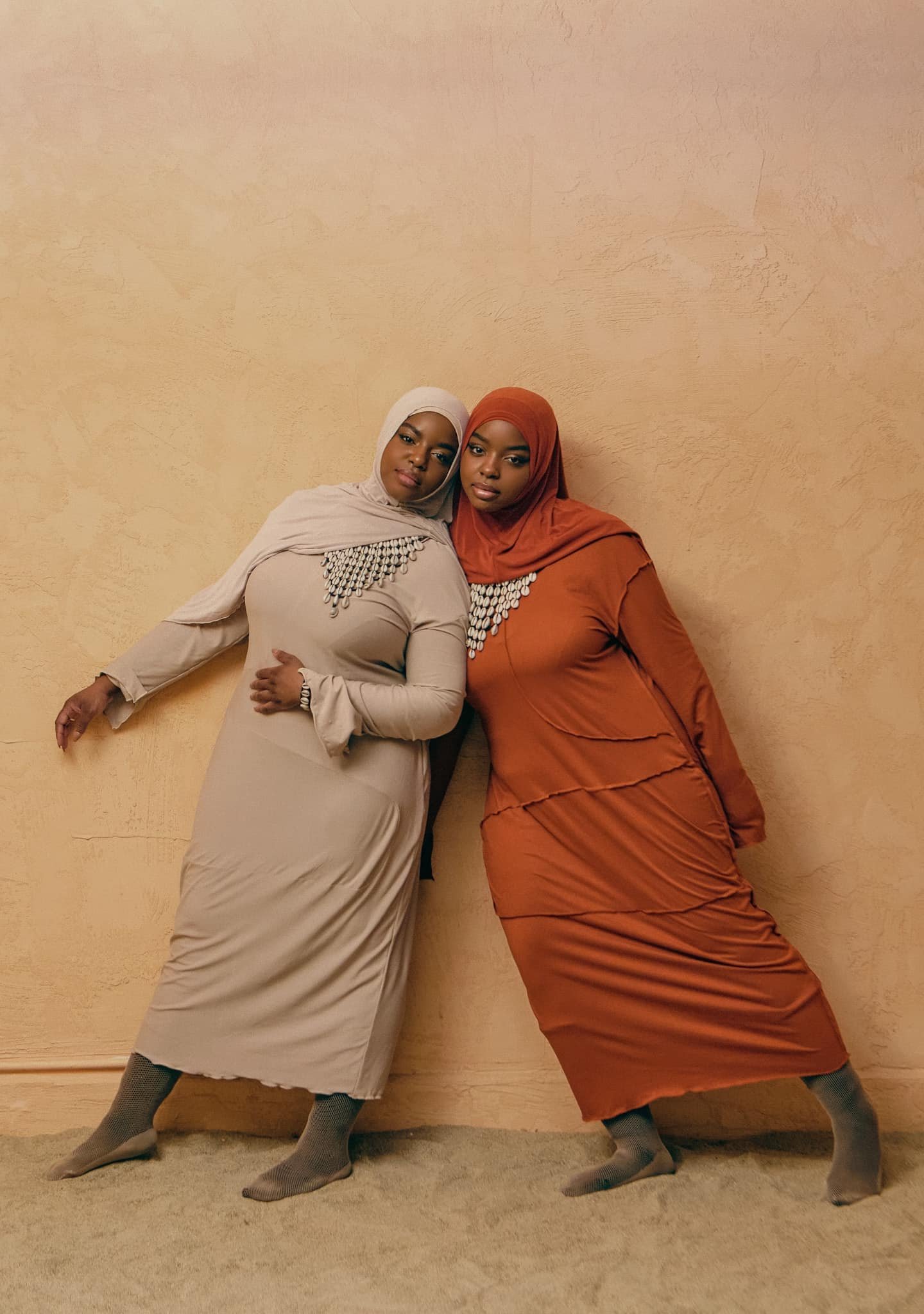By Adama Juldeh Munu
“Can Muslim women be down with hip-hop?” is a question Anaya Murray asks in her 2008 paper of the same title. If you have ever heard of Muslim hip-hop artists Poetic Pilgrimage, Miss Undastood, Aint Afraid and Boshia Rae-Jean you might ask the same question, as these women are rarely mentioned in conversations on hip-hop. When you consider that Islam has been deemed the “iconic religion of hip-hop,” the absence of their names in larger conversations around the genre is worth examining. Moreover, there are many ways that Islam has shown up in hip-hop music: Lakim Shabazz’s “Black is Black” samples Malcolm X's fiery “The Black Revolution “speech, Lauryn Hill’s “Doo Wop” mentions ‘Suratul Mustaqeem’ (“straight path” in Arabic) from the Qur’an’s opening chapter Surah Fatiha and rapper Eve’s “Double R What” uses the Arabic translation for God, Allah. The connection is there, and despite the lack of mainstream discussions around Black Muslim women rappers, an understanding of their musical contributions is essential to understanding the larger canon of hip-hop.
An understanding of this connection is made possible thanks to research from historians like Sylviane A. Diouf, who suggests that the blues-which heavily influenced rock ‘n’ roll and hip-hop-was rooted in the musicianship of enslaved Sahelian Muslim musicians. They use string and wind instruments compared to enslaved non-Muslims who relied heavily on drumming and group singing which were banned by the mid 18th century in the US. And that the blues shares similar musical properties with the Islamic call to prayer for instance. Therefore, Black Muslim rap is a continuation of the relationship between African-American music and its West African Islamic roots.
Miss Undastood (Tavasha Shannon) was the first Muslim woman I had ever heard rap on an album. She identifies as an Afro-Latina conscious rapper who isn’t afraid to speak from her experience as a single parent, a survivor of domestic violence and as a proponent of women’s empowerment. I initially heard her on the song “Tala ‘al Badru Alayna,” a rendition of the traditional Arabic nasheed with British Muslim hip-hop pioneers Mecca2Medina that appears on their 2005 album Proud to be a Muslim. The album is a collection of rap songs that uses traditional African instruments, hip-hop sounds and dancehall beats and deals with a myriad of topics, similar to those Miss Undastood raps about such as racism, brotherhood, Black pride and the Prophet Muhammad. These themes also appear in her own songs like “What you know about love” and “Black Superwoman.” When asked about her career as a rapper and the inclusion of certain topics in her music, she says:
When I first started, there weren't any Black Muslim female artists at all doing what I did. I was the first, and I was doing ‘Islamic hip-hop’ which was like Gospel rap. I spoke on gender and racial bias because as a Black woman what I was doing was being frowned upon while men, or Arab Muslims were enjoying music and art.
Black Muslim women’s participation in rap is in keeping with a concept within Islam known as “Al Amr wa Bil ma’ruf” or “enjoining the good,” which dictates that societal problems and issues should be called out and corrected by individuals and the community. That Black Muslim women choose to use this creative expression or art form to this end is a demonstration of how uniquely historical musical tradition and spiritual beliefs align uniquely for Black Muslim artists.
Sakinah and Zakiyyah Rahman of rap duo Aint Afraid build upon the same tradition as Miss Undastood, saying they aren’t afraid to speak to the “Jennah-ration” (Generation) and appeal to a new Muslim audience of Millenials and Generation-Z. Born in Baltimore, Maryland and raised in Metro Detroit, Michigan, this duo have been singing since the age of two. They are known for their online viral hits like “LBP” and “Rover and Benz,” and producing songs for Muslim and non-Muslim audiences:
We're twin sisters that have shared a genuine love for singing and spoken & visual art since we could speak. We decided on the name Aint Afraid because it was a very fitting phrase for who we are and what we wanted people to know about us before we even speak. We also hope that through our music and journey others find how they too "Aint Afraid.”
Aint Afraid (Facebook)
The music video for their song “We will Breathe” caught my eye. It was made in the wake of the deaths of George Floyd, Breonna Taylor and Ahmaud Arbery and has been watched on YouTube more than 50,000 times. In the song, they draw on the rich traditions of sayings mostly associated with Civil Rights activists like Malcolm X and Martin Luther King, and what’s described as the Black National Anthem “Lift Every Song, a rallying cry for racial justice and resilience. Sakina and Zakiyyah both tell me:
We have always been passionate about ourselves and others using the arts for good causes. Part of our mission is to spread good messages through our work as well as being vulnerable and real and life that people can relate to. For years we have mentored and worked alongside young people to advocate through poetry, storytelling, rap, etc.
This movement that Aint Afraid is involved in is being echoed by their Black Muslim women counterparts in countries like Senegal, who are increasingly taking up rap music to address problems within their society. And while it is still taboo for Muslim women who cover to take up music publicly, Senegalese women rappers are taking up the mic to have their voices heard, inspired by other women rappers elsewhere in Africa and beyond. For example, an all-women hip-hip collective of 70 Senegalese women rappers, singers, DJs and graffiti artists known as “Genji Hip-Hop'' developed out of a Whatsapp group created in 2017 with a mission to provide transformative change. A civil society organization, they hold workshops for women and put on concerts to address issues such as domestic violence and equality.
Mina La Voilée (Facebook)
One of Genji hip-hop’s rising stars is Aminata Gaye, whose rap name Mina La Voilée is French for Mina the veiled one. On her song “Girl Power” she highlights the importance of women owning their lives and fighting against misogyny. She often uses the Wolof word “mun” to refer to women who allow men to dictate their lives; and touches on how women should always speak out collectively. She initially received backlash because being a “veiled women rapping” wasn’t seen as appropriate, but she says that’s not stopping her:
In this area, as in so many others, women are not well represented or at least are subject to discrimination, to some form of violence. It is up to us to bring about a change and I share the view that the empowerment of women leads to gender equality but also to the eradication of poverty.
However Black Muslim women rappers have not always been well received. In 2020, for example, Black Saudi Arabian rapper Ayasel Slay was heavily criticized and the subject of racist and sexist abuse online over her video for “Bint Mecca” (daughter of Mecca in Arabic). She was also threatened with arrest. As Dr Su’ad Abdul Khabeer states in her book “Muslim Cool: Race, Religion, and Hip-Hop In The United States,” Black Muslims are not always able to full participate and benefit from their cultures within the wider communities to which they belong because “the Black Muslim performing body is a tool that is appropriated for non-Black ends and through this…Black Muslim men (and women) are flattened into essential Black subjects.”
Despite this, Miss Undastood thinks the game has changed for Black Muslim women rappers compared to when she first started in the early 2000s:
Muslim women in rap still have a long way to go. Brace Yourself! More of my Black Muslim sisters are becoming more visible, appearing on BET and other platforms, and opening up/ performing with some of the legends. Representation matters so it's a good look for us. I thought when I made it to Netflix that I made it, but I came to the realization that it takes a lot to really get far in this ‘rap game.’
Black Muslim women’s voices within hip-hop have existed without much research being done on their contributions to the culture. This is in spite of the influence that Islam has had previously on earlier inceptions of rap music and the link between hip-hop and Black mainstream artists, both men and women. The rich tradition connecting Black Muslim women to the artform is clearly seen in common themes of social commentary, activism and women’s rights and identity.



